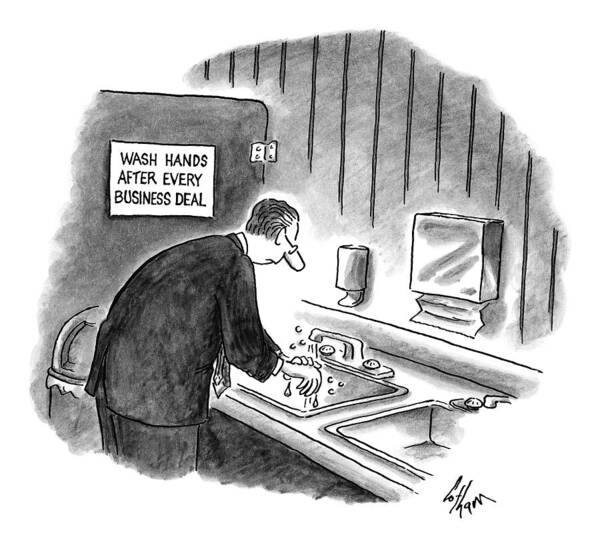As result of the interview with CNN, I was introduced to a number of new acquaintances. Not all of them were enchanted. Letter to the Editor: Shame. Shame on you for wicked beliefs. ...
That CNN Report: Viewing the Game Film
Introduction: So last week CNN dropped a report that they had put together on all the doings out here in Moscow. That piece was a blessing for us in many ways, and I thought to take a few minutes ...
Postmillennial Worship
Introduction: Postmillennialism is the conviction that prior to the Second Coming of Christ, the earth will be as full of the knowledge of the Lord as the waters cover the sea. The church’s marching ...
Self-Deception in Business
Introduction: When a preacher talks to businessmen, it is not uncommon to have the topic tend toward things like “learning to be generous,” or “maintaining a work/family balance,” or "don't ...
Mingle Mangle
“Attempts to undertake what is euphemistically called sex reassignment surgery is in reality a high revolt. It is an attempted coup, an attempt to assassinate the God of Heaven. We can see this in two aspects. First, it attempts to take a prerogative of Deity in hand—only God can transform XY chromosomes into XX. And second, when God did this, the result was something that bore His image, the image of God. When He did it, the result was glorious beauty. When we do it, it will come out as some kind of mingle mangle of Frankenstein, The Sorcerer’s Apprentice, Mr. Potato Head, and the book of Enoch. It cannot end well . . . unless you count fire from Heaven as ending well.”
Virgins and Volcanoes, p. 24
Not You
“The basic Christian answer to our leaders and scientists and politicians and writers and poets and philosophers has to be this. Who is God? Not you. Who has the prerogatives of Deity? Not you.”
Virgins and Volcanoes, p. 23
Why Civil Government Must Have a Transcendental Grounding
“When I tell an ordinary citizen that he must not steal, I should be in a position to answer the question if he wonders why. If I tell my government that it must be modest, what do I do in the face of the same question? For—believe me—governments want to misuse their power more than ordinary citizens want to steal. My elected representatives want to steal from me more than my next-door neighbor does. That being the case, they must be told not to—which is a strong ethical requirement. As such, like all ethical requirements, it requires transcendental grounding.”
Cutting With the Grain

How To Honor Your Divorced Parents | Doug Wilson
Pride Entire
“The aboriginal sin is not sexual, but is rather pride and insolence. Sex gets involved soon enough, but the sexual issues are just the battlefield. The conflict is over mastery.”
Virgins and Volcanoes, p. 21







